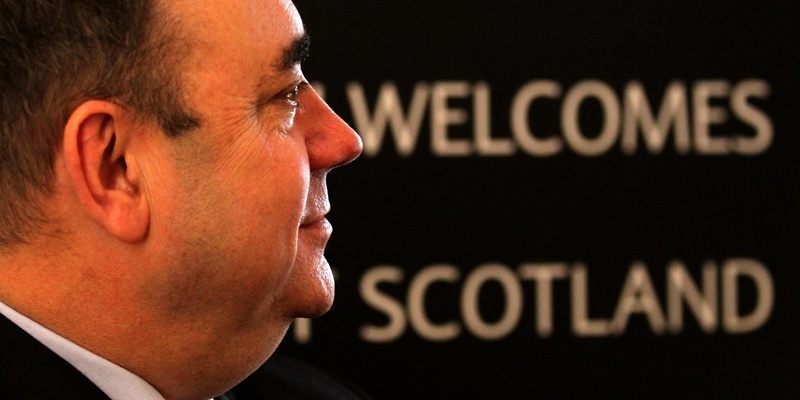A constitutional expert from Dundee University says Alex Salmond’s attempt to force through an independence referendum is illegal.
Professor Alan Page, Dean of Law at the university, spoke out on the legal question that has divided Britain after MSPs voted to proceed with the plan to hold the poll in autumn 2014.
The First Minister has been at odds with Westminster and opposition parties at Holyrood over the organisation of the vote on Scotland’s constitutional future.
The UK Government insists the SNP administration does not have the legal powers to hold the referendum, as the constitution is a matter reserved to Westminster. While Scotland Secretary Michael Moore offered to temporarily extend Holyrood’s powers to allow a referendum to be held, the nationalists have rejected the ”strings” they claim are attached.
Mr Salmond says he is ”entirely confident” in his right to hold an ”advisory” referendum on the issue of independence given the mandate the SNP secured in last May’s Holyrood election.
But Mr Page told The Courier the referendum would likely be judged illegal by the courts unless Westminster changed the law.
The academic, who has acted as a specialist adviser to Westminster and Holyrood committees, said: ”I think there are real doubts over the power that the Scottish Government has in terms of the referendum. I mean the Scottish Government has come out with this business that (an advisory referendum) is not definitive, it is not binding, but I don’t think that washes because, of course, the whole object of the referendum is to break up the union.
”The formally correct answer is that only a court can decide the legality of the referendum. But, if it came down to it, I think the answer would be that they don’t actually have the power to hold the referendum.”
His comments will be seen as a blow to Mr Salmond, whose advisers regularly cite Mr Page to back up their case that their referendum would be legal.
Scottish Conservative leader Ruth Davidson said Mr Salmond’s authority only extended to organising an ”opinion poll”.
She added: ”He promised a democratic vote in his manifesto and the offer is now on the table from the UK Government to hold a fair, legal and decisive referendum. It’s about time he got on with it for the good of Scotland.”
But Professor Page predicted that the issue would eventually be resolved by negotiations between the UK and Scottish governments, opening the door to a referendum.
”I don’t think it is in anybody’s interest for it to end up in the courts, because that would indicate a failure in the political process,” he said. ”Westminster does have the power to sort it out and make the referendum legally fireproof so that the position is unambiguous and with no room for argument.
”The question is the terms on which they do that. In other words, can they reach a deal?”
During a debate at the Scottish Parliament on Thursday, Mr Salmond said he had ”every interest” in reaching a consensus on the staging of an independence referendum. But he insisted it would take place under the Scottish Parliament’s remit, adding: ”The people of Scotland spoke in the election and their voice was very clear indeed a referendum organised in Scotland, built in Scotland, for the Scottish people, discussed with civic Scotland and then brought to the people in 2014 for a historic decision on the future of this nation.”
Photo by Andrew Milligan/PA Wire
